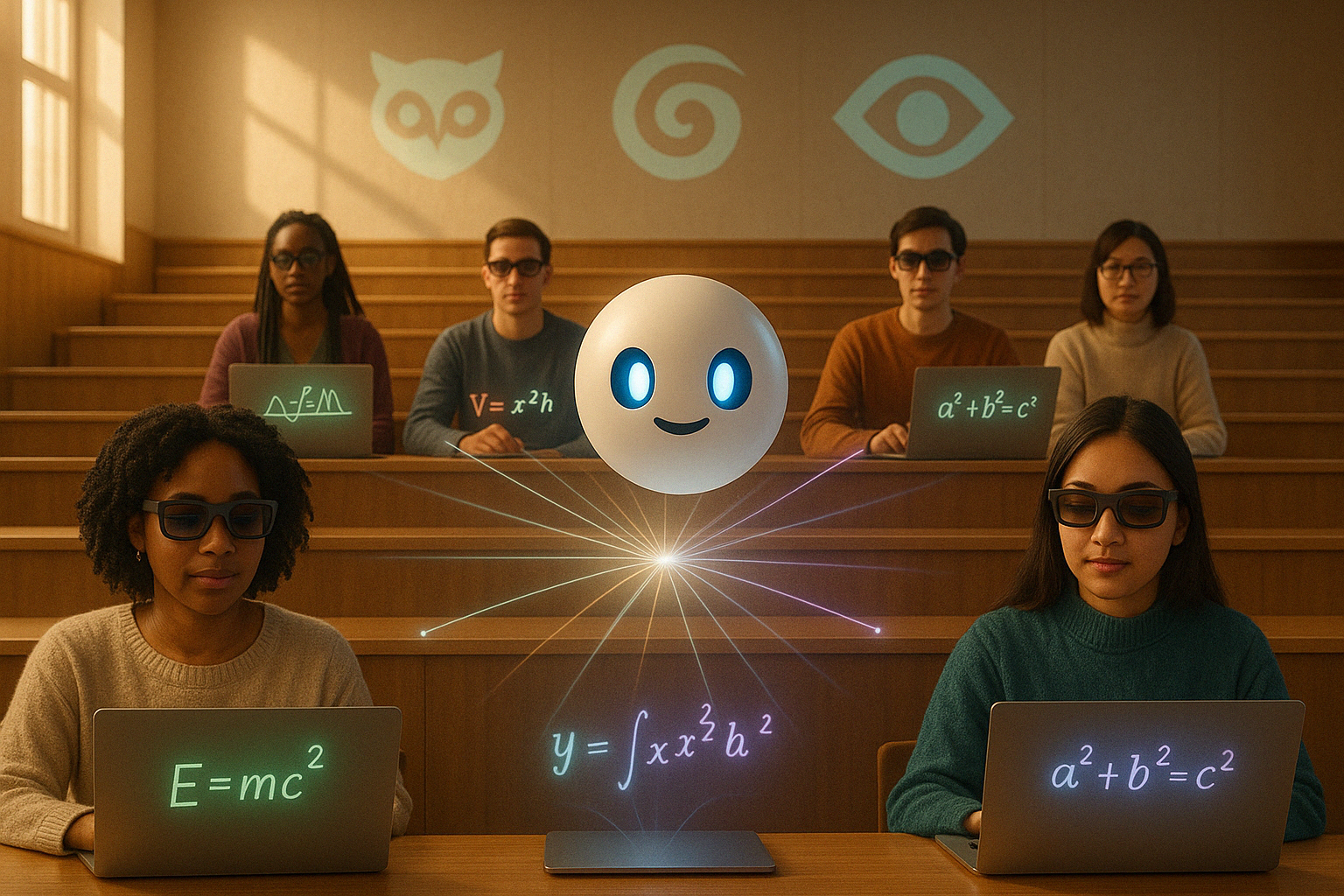
AI in the Classroom: Claude, OpenAI Academy & NVIDIA Certifications
Caiyman.ai Research Team
AI Solutions Architect
Classrooms are changing faster than chalkboards became whiteboards. The 2024‑2025 academic year marks the first time most universities offered an institution‑wide AI resource hub. Three programs lead the charge—Claude for Education, the OpenAI Academy, and NVIDIA’s Generative AI LLM Associate certification. Whether you are a student, professor, or lifelong learner, these initiatives will shape how you acquire (and prove) AI fluency.
Claude for Education: Guided, Not Gamed
Anthropic surveyed thousands of students and found that the most common GenAI use cases are problem solving, content creation, and data analysis. To avoid “homework outsourcing,” Claude’s new Learning Mode forces the model to reply with hints and Socratic questions before revealing solutions. Students must articulate their reasoning—mirroring professional peer review—and professors can audit the chain‑of‑thought transcript.
Setting Up Claude on Campus
- Single‑sign‑on with Canvas or Blackboard means zero new passwords.
- Department dashboards show adoption metrics and flag plagiarism risks.
- Admin policies cap daily token usage to control costs.
OpenAI Academy: Free Curriculum at Internet Scale
Announced in March 2025, the OpenAI Academy combines recorded workshops, live office hours, and API credits. Faculty can remix slide decks on prompt engineering, ethics, or AI governance. The academy also features a global Slack community—think Stack Overflow for educators.
Sample Module: Prompt Engineering 101
- Describe the desired outcome in one sentence.
- Add exact constraints (format, tone, facts).
- Provide one good and one bad example for few‑shot priming.
NVIDIA LLM Associate Certification: Proof You Can Ship
The $125 exam covers LLM architecture, retrieval‑augmented generation, and on‑prem deployment on CUDA GPUs. Passing earns a digital badge valid for two years—long enough to matter to recruiters but short enough to encourage continuous up‑skilling. Candidates report average preparation time of 15–20 hours.
Building a University Talent Pipeline
Several engineering schools now bundle the certification into senior‑year capstones. Companies benefit from grads who can deploy GPU‑optimized models on day one.
Technical Deep Dive—Interoperability & Privacy
Both Anthropic and OpenAI are converging on the Model Context Protocol (MCP), ensuring that memory objects and tool calls look the same regardless of vendor. That means assignments built around Claude can migrate to GPT‑4o with minimal refactoring.
Data privacy is the elephant in the lecture hall. A Voronoi study showed Google’s Gemini collects 22 data points per chat—more than any competitor. Universities must decide whether to host open‑source checkpoints on campus servers or trust vendor SOC 2 promises.
Hands‑On Classroom Ideas
- Literature to Podcast: Ethan Mollick fed his latest book into NotebookLM and generated a six‑episode podcast plus study guide.
- AI Lab Assistant: Claude walks chemistry students through titration steps, asking them to predict pH changes before revealing hints.
- CUDA Code Review: Students paste assignment files into GPT‑4o’s code interpreter and receive line‑by‑line feedback.
Assessment 2.0
Expect fewer timed exams and more project‑based evaluations. Professors are piloting “explain‑your‑prompt” vivas where students defend design choices like lawyers defending briefs.
Future Outlook
The line between coursework and professional development will blur. By 2027, micro‑credentials may stack into degree credits, and AI tutors could handle 80 % of office‑hour questions. Educators who embrace these tools early will free time for mentorship and research.
Looking to integrate AI into your curriculum? Caiyman.ai offers turnkey workshops, LMS plugins, and policy templates.
Sources
Share this article
Related Articles

AI in Real Estate Finance: Market Analysis, Top Platforms & 2026 Implementation Strategies
Comprehensive analysis of AI adoption in real estate finance, featuring market projections, platform comparisons, and strategic implementation guidance for 2026.

AI Revolution in Real Estate 2025: How Technology is Driving $34B in Industry Transformation
Discover how artificial intelligence is revolutionizing real estate with $34 billion in projected efficiency gains, 37% task automation potential, and game-changing technologies reshaping every aspect of property operations in 2025.

AI in Commercial Real Estate 2025: How Smart Technology Is Reshaping Property Investment and Management
Discover how artificial intelligence is transforming commercial real estate in 2025, from predictive analytics to smart building management, driving 70-95% efficiency gains and creating new competitive advantages for property professionals.